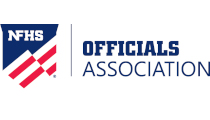Former Olympians Share a Immense Respect for Officials
By Tim Leighton on August 15, 2016 officials PrintRoseau, Minnesota, native Neal Broten and former Anoka (Minnesota) High School standout Briana Scurry are both retired from athletic careers that spanned an era when they were the mightiest of mites to when they achieved international glory.
When contemplating post-career plans, they both arrived at the same conclusion: Neither of them considered being a sports’ official.
“I think I could be a pretty good hockey official,” said Broten, who played in the National Hockey League for 17 years and won a gold medal during the 1980 Lake Placid Olympics. “I think I would be very respectful and call the game fair. I am not so sure I could handle some of the screaming and yelling you hear these days. I just might have to bark back.”

Briana Scury
Scurry led Anoka to the Minnesota State High School League girls soccer state championship in 1989 before embarking on a success-laden career that resulted in Olympic gold medals and World Cup championships as the goalkeeper for the U.S. women’s national team.
“I would consider coaching in my career before officiating,” Scurry said. “That isn’t a negative at all against officiating. It just seemed to be way too much stress. I have control in the goal as a player and as a coach. As a referee, it is more reactive.”
Broten and Scurry were in downtown St. Paul last year as part of the Minnesota State High School League’s historic Hall of Fame induction class, celebrating its 100th anniversary.
Scurry, who played in 173 international games, the most for any female soccer player in the world, spoke on behalf of the 12-member induction class. In her moving remarks, she thanked Broten and the rest of his “Miracle on Ice” teammates for inspiring her to achieve success.
Officiating might actually have been an avenue that Scurry pursued.
From age 12-17, Scurry officiated boys’ youth soccer games and was even selected to work the USA Cup tournament, one of the largest in the world.
“I really enjoyed spending time as an official,” she said. “It helped give me a different perspective. Knowing the game as a player helped me with the perspective of how to better do my job as an official. I have a huge amount of respect for officials, especially when things got heated. You have to work together as a crew, much like you do as a member of a team.”
As an official, Scurry said she learned early not to listen to catcalls from parents and fans.
“When I worked a game, I let parents know that I was there to make sure the game was being played fairly and that I wouldn’t have any shenanigans,” she said. “I just wasn’t going to tolerate it. My philosophy was to get a hold of the game early. I think people respected that because they knew I was a player.”
Scurry recalls her senior season of prep soccer when she had interaction with an official. It was a section championship game being played in wintry conditions with limited visibility. Scurry remembers that the official wasn’t getting calls right and she admits she pushed the envelope a bit.
With the U.S. national team, she was issued a red card during a World Cup game after stepping over the goal line, a call she said was incorrectly made.
“He totally got it wrong,” Scurry said. “He was sent home, and I don’t think he officiated at that level again. I knew it was a wrong call. When I played I have a short memory about calls. If you get upset and ride the referee like athletes, coaches and fans do now, it won’t work in your favor. Referees have a tough job and I have a ton of respect for them.”

Neal Broten
Broten grew up in Roseau, a seemingly long slap shot away from the Canadian border. Hockey is king in the town of 2,633, and strong sportsmanship was a character requirement.
“Respecting officials was one of the first things we were taught,” Broten said. “I was brought up that way. You know growing up they will make some obvious calls, some great calls, and yeah, probably some bad calls mixed in there, too .”
Broten remembered seeing respected Roseau residents during their day jobs and then seeing them at the rink.
“You would see a guy take off their fireman outfit and trade it in for referee stripes,” Broten said with a smile. “The same guys you saw during the day, businessmen, bankers, the grocery guy, all became hockey refs at night. It was a pretty cool deal. They have hard jobs and I respect all the work and effort they put in to get better.”
Broten admits there was a time, as a fan, when he had to bite his tongue for a call that wasn’t made.
Following the 1980 Olympics, he returned to the University of Minnesota to watch his younger brother, Aaron, play in a playoff game. Aaron, who played on a line with his brother in high school, whistled a shot so fiercely that it sailed through the cage and through the back of the net with nary a thread moving.
A goal was not allowed.
“I was more upset that Aaron wasn’t credited with a goal,” Broten said. “I saw it with my own eyes go through the net. I was really upset. There has been a lot of praise put on me over the years and he has had to sort of be in that shadow.
“All the way from squirts to high school, to college, to the Olympics and the NHL, you can tell these days that the officials are better prepared, better educated, and the result is a much better game experience. That’s great to see.”
Tim Leighton
Tim Leighton is the Communications Coordinator of the Minnesota State High School League. In addition, he is a 26-year official with the MSHSL and a member of the NFHS Officials’ Publications Committee.
Most Recent Articles
- nfhs news NFHS Learning Center Delivers 25 Millionth Course
- Track & Field/Cross Country article Effective Communication with Athletes and Coaches
- nfhs news Player Equipment Changes Highlight 2025 High School Football Rules Revisions
- Player Equipment Changes Highlight 2025 High School Football Rules Revisions
- nfhs news Judgment Call on Second Contact Eliminated in High School Volleyball






